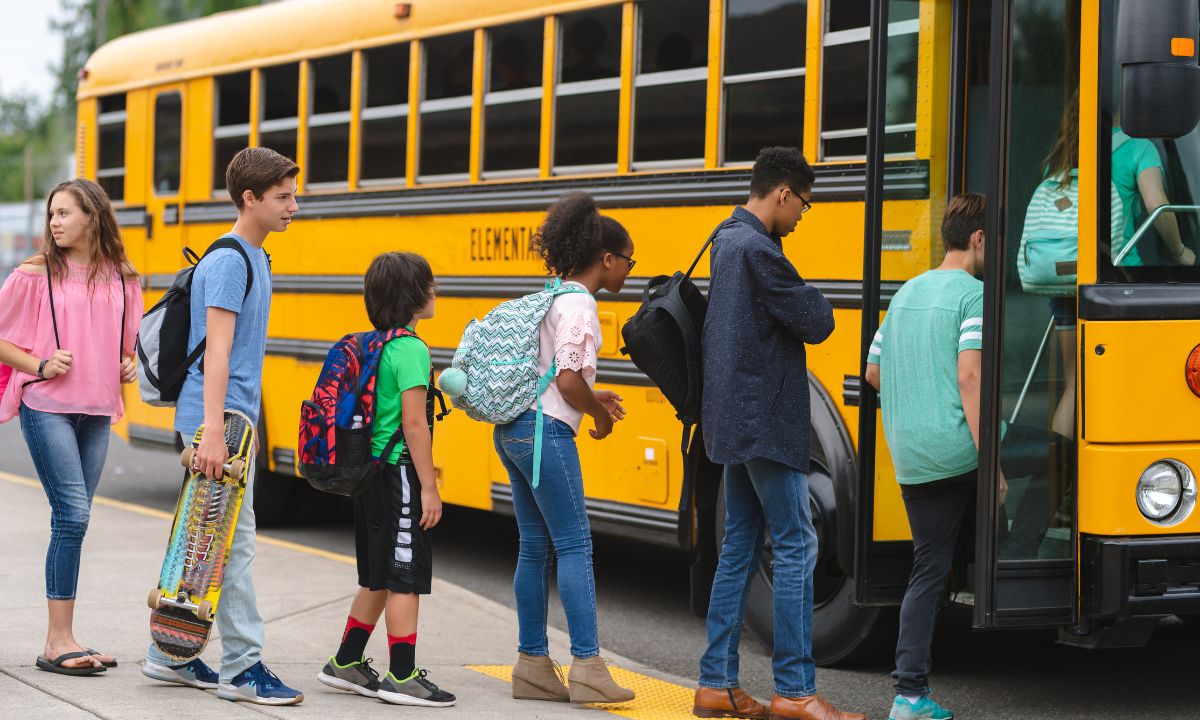State Will Roll Out More Money to Help Districts Pay to Bus Students to School
The new spending is part of a planned $1.4 billion in new education spending, which also includes teacher raises and grants for school safety.

Get stories like this delivered straight to your inbox. Sign up for The 74 Newsletter
Every weekday morning and afternoon, a fleet of yellow buses rolls out all over the state, picking up and dropping off Georgia students.
Keeping all those wheels turning isn’t cheap – Georgia’s school districts combined spend more than $1.2 billion to safely shuttle kids between school and home – and costs are only getting higher as more students enroll and the costs of buses, fuel and labor rise.
For more than two decades, local districts have been stuck footing those bills. According to the Georgia Budget Policy Institute, the amount of money the state pitches in for transportation has been basically stagnant since the early 2000s. Those state dollars used to fund over half of the districts’ transportation costs, but now only cover about 17%.
Gov. Brian Kemp’s proposed 2025 budget, which he unveiled Thursday, aims to pick up an additional $205 million of that, accounting for 40% of operational costs. The new spending is part of a planned $1.4 billion in new education spending, which also includes teacher raises and grants for school safety.
“Meeting our obligations as a fiscally conservative state means meeting our obligations to our local school systems,” Kemp wrote.
New money for yellow buses may not be as attention-grabbing as raises for teachers or a grant to hire school resource officers, but those dollars will go a long way, said Stephen Owens, director of education at the Georgia Budget and Policy Institute.
“Unlike in the past where it’s been this one time funding, this forever sets the baseline higher,” he said. “This is a huge step forward for these districts. And when you pair that with other formula changes like the $100 million for school security grants, for that to be a continued line item for schools, the impact is going to be amazing for districts.”
The amount is not set to change with inflation, Owens added, so if costs continue to rise in the years to come, a future governor and legislators will need to take action to keep funding at the same level. But for now, reducing the costs of buses will free up schools to pay for all the other things they need.
“They’re going to see a lot of these funds that come down from the state just as a whole pot of money because of the vast amount of flexibility we provide districts on how to spend dollars from the state,” Owens said. “So that will open up dollars for better pay for substitutes, up to date curriculum, maybe continuing some of the programs that they started during the pandemic with federal dollars now with local dollars.”
Federal pandemic relief funds are set to dry up in September for schools nationwide, and districts, especially those in lower-wealth areas, will likely face cuts to staff, programs and extracurriculars.
Georgia Recorder is part of States Newsroom, a network of news bureaus supported by grants and a coalition of donors as a 501c(3) public charity. Georgia Recorder maintains editorial independence. Contact Editor John McCosh for questions: info@georgiarecorder.com. Follow Georgia Recorder on Facebook and Twitter.
Get stories like these delivered straight to your inbox. Sign up for The 74 Newsletter

;)